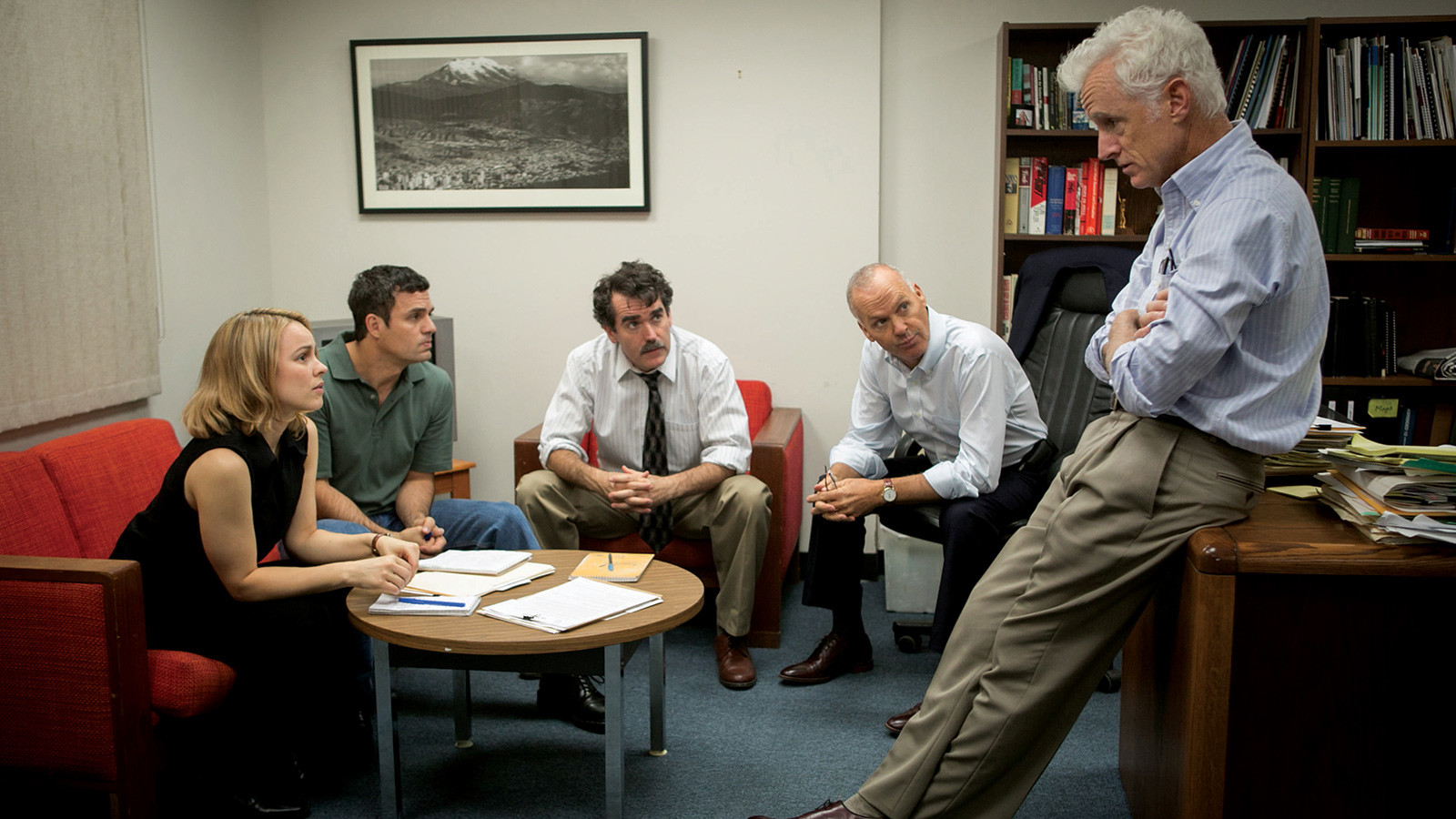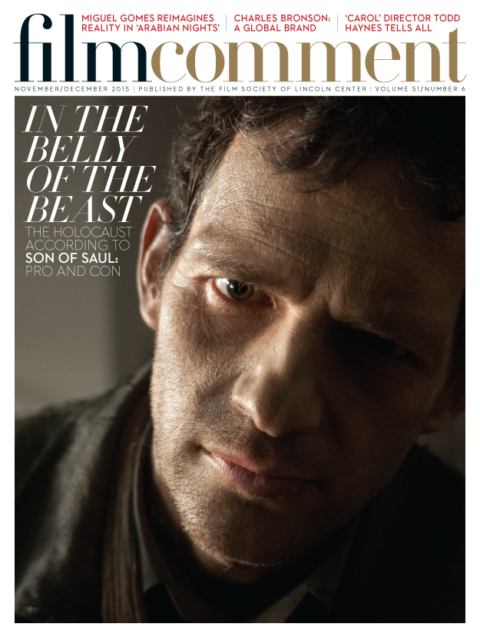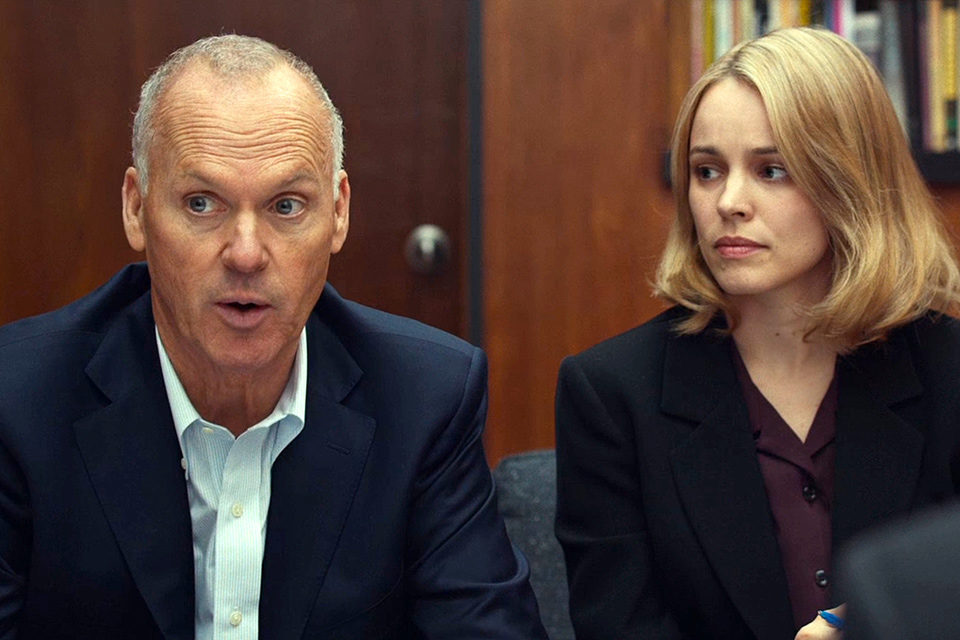
Review: Spotlight
You won’t be able to throw a paperweight or a Pulitzer without hitting critical comparisons between Tom McCarthy’s drama about Boston Globe reporters exposing the Catholic Church’s musical-chairs pedophile policy and All the President’s Men, the reigning standard-bearer for compelling movie journalism. Let’s not bury the lede: in addition to some straight-up tips of the hat, there are trace similarities between Alan J. Pakula’s how-the-Watergate-was-won autopsy and this deep dive into top-down institutional rot in Beantown and beyond. Both are concerned with uncovering cover-ups; both are dogged in detailing how newsroom sausage gets made. And if McCarthy’s ode to the men and women who kept following the money—not to mention the monsignors and the misery—doesn’t have the unimpeachable rigor of its predecessor, it still does its subjects proud by treating the earlier movie’s monastic devotion as something to emulate. What we have before us is a case study on how to do shoe-leather cinema—and smart, A-list American moviemaking—right.

Let us now praise semi-famous muckrakers: Walter “Robby” Robinson (Michael Keaton, now officially in a career renaissance), the seasoned editor who runs the paper’s investigative team, Spotlight; reporters Matty Carroll (Broadway stalwart Brian d’Arcy James), Sacha Pfeiffer (Rachel McAdams), and Michael Rezendes (Mark Ruffalo); and incoming editor-in-chief Marty Baron (Liev Schreiber), freshly plucked from Miami in July 2001 to help bring the Boston paper into the 21st century. Ironically, he’s the one who suggests a good old-fashioned shake-up regarding a story about Father John Geoghan, who—as the movie’s 1976-set preamble shows us—was released into the Archdiocese’s care after being detained on charges of molestation. Having now been accused of sexually abusing 80 kids while serving in various different parishes, the former priest is back in the news, and Baron wants earlier court transcripts un-sealed. “So you want to sue the church?!” asks managing editor Ben Bradlee Jr. (John Slattery), immediately assuming a short-term-bracing stance. And the bloodhounds go off leash and start their sniffing around.
This is where most films would hype the David-versus-Goliath angle, emphasizing the triumph of the underdog in giant, Gold Derby courting gestures. Instead, McCarthy and screenwriter Josh Singer zero in on the legwork: the pounding of pavements, the chasing down of leads, and the knocking upon doors, one of which just happens to open to reveal an ex-clergyman who guilelessly starts confessing his crimes. A cynic might say Singer is atoning for having penned the Julian Assange biopic The Fifth Estate; as for the director, one assumes he’s not making up for the cinematic war crime of having helmed The Cobbler so much as doing penance for playing a poorly drawn journo in The Wire’s final newsprint-stained season.

Spotlight
On the contrary, Singer and McCarthy’s restraint is a procedural necessity. They want to make a movie dedicated to connecting the dots and putting in the man-hours, to pay tribute to the hard, un- glamorous work that constitutes actual reporting. So they replicate the just-the-fact-finding-ma’am modus operandi of their Spotlight all-stars, and strike gold when it comes to dramatic payoffs all the more effective for being muted.
Which means you get lots of scenes like the conference call in which Marty and company slowly, shockingly realize they’re on to something huge, and only one Awards-clip-ready example of histrionics from Ruffalo’s on-the-spectrum go-getter. For every overwrought sequence of a boy’s choir singing “Silent Night, Holy Night”—savor the metaphorical import—you get McCarthy and cinematographer Masanobu Takayanagi cleverly inserting schoolchildren into the background of a cover-up conversation and an AOL billboard doubling as a sly sick-joke punch line. You get across-the-board performances that attest to the power of underplaying, so that the delivery of a line like “It takes a village to raise a child, and it takes a village to abuse one” hits home without hitting you over the head. This is a movie that doesn’t end with a stand-up-and-cheer victory lap but with weary people answering phones, writing follow-ups, and going to back to work.







